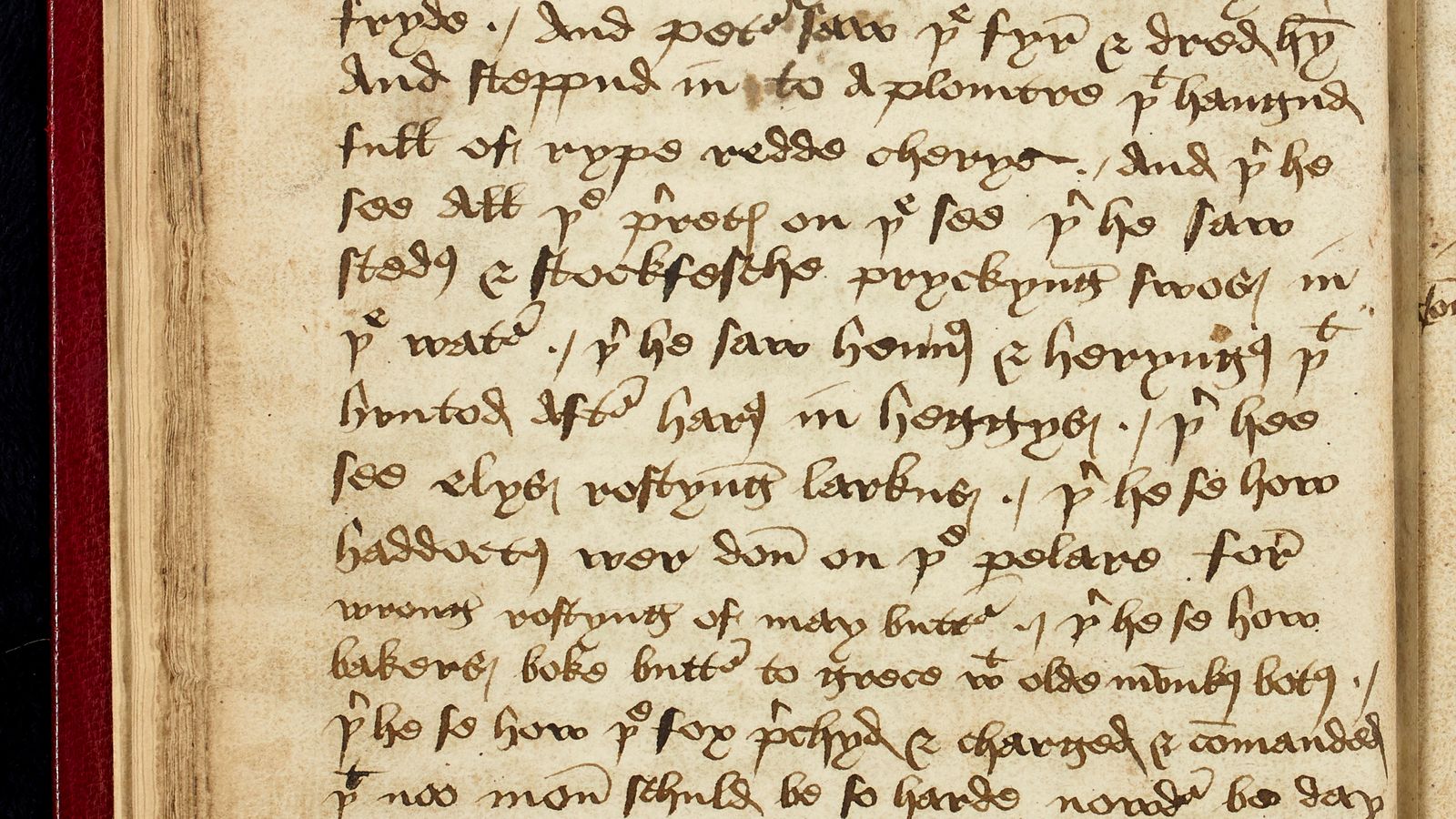Academics have identified a rare 15th century manuscript as the text for a live comedy performance that includes a scene similar to Monty Python’s Killer Rabbit of Caerbannog.
Dr James Wade of Cambridge University discovered the script while researching in the National Library of Scotland and said it gave the “rarest glimpse of a medieval world rich in oral storytelling and popular entertainments”.
The performers mock kings, priests and peasants and encourage audiences to get drunk.
One scene features fictional peasant Jack Wade, who could be from any medieval village, and reads: “Jack Wade was never so sad / As when the hare trod on his head / In case she would have ripped out his throat.”
The text also contains what is believed to be the earliest recorded use of “red herring” in English.
Dr Wade believes that household cleric Richard Heege, who wrote the manuscript, copied out the text from a now-lost memory aid by an unknown minstrel.
Mr Heege was a tutor to the Sherbrooke family, part of the Derbyshire gentry, to whom his booklets first belonged.
Dr Wade concludes that Mr Heege copied the text of the unknown minstrel, who performed near the Derbyshire-Nottinghamshire border, in about 1480.
At this time, the Wars of the Roses was still being fought and life was difficult for most people in England.
“These texts remind us that festive entertainment was flourishing at a time of growing social mobility,” Dr Wade said.
“People back then partied a lot more than we do today, so minstrels had plenty of opportunities to perform.
“They were really important figures in people’s lives right across the social hierarchy.
“These texts give us a snapshot of medieval life being lived well.”
Dr Wade said he realised the text included a comedy performance when he noticed that scribe had written: “By me, Richard Heege, because I was at that feast and did not have a drink.”
The researcher said: “It was an intriguing display of humour and it’s rare for medieval scribes to share that much of their character.”
Dr Wade also thinks the minstrel wrote part of his act down because its many nonsense sequences would have been extremely difficult to recall.
Read more UK News:
Phillip Schofield dropped as charity ambassador
Rail strikes to cause more disruption
UK to send signed Beano copies to Australia and New Zealand to mark start of post-Brexit trade deal
“He didn’t give himself the kind of repetition or story trajectory which would have made things simpler to remember,” said Dr Wade.
“Here we have a self-made entertainer with very little education creating really original, ironic material.
“To get an insight into someone like that from this period is incredibly rare and exciting.”
Dr Wade’s study, published in The Review of English Studies journal, focuses on the first of nine miscellaneous booklets in the Heege Manuscript.
This booklet contains three texts; a tail-rhyme burlesque romance entitled The Hunting Of The Hare, a mock sermon in prose, and The Battle Of Brackonwet, an alliterative nonsense verse.












